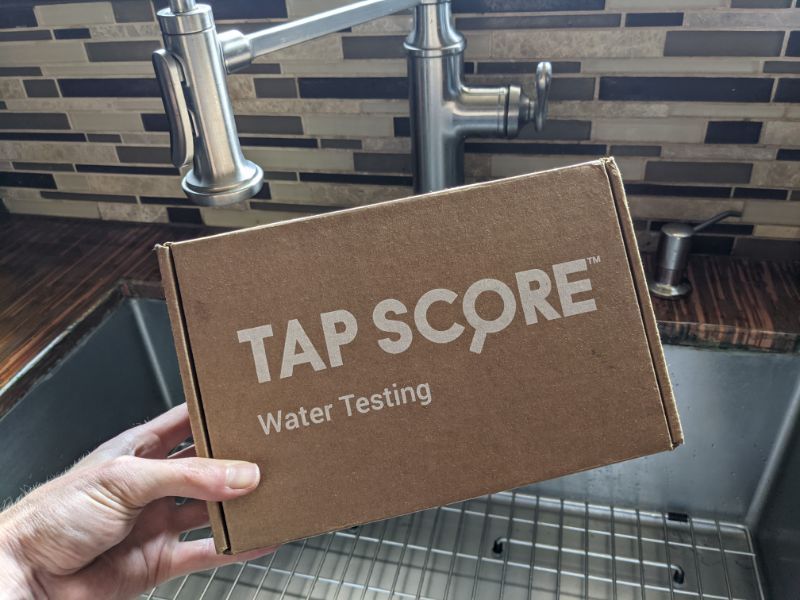A free and easy way to find out about your drinking water quality is to view your Consumer Confidence Report, or CCR Drinking Water Quality Report.
In this quick guide, we’ve shared everything you need to know about Consumer Confidence Reports, including what they are, what they tell you, and where to find them.
Table of Contents
🤔 What Are Consumer Confidence Reports (CCRs)?
Consumer Confidence Reports are documents providing details of the local drinking water quality in an easy-read format.
According to EPA regulations, every community public water system must generate an annual Water Quality Report and make it available for customers to view by July 1 of every year. These reports are delivered directly to bill-paying customers and can usually also be viewed online.

❔ Why Is a Consumer Confidence Report Required?
CCRs do as their name suggests: they give consumers confidence that they have access to safe drinking water.
Your community water supplier is legally obliged to provide a Consumer Confidence Report for your drinking water. You can use this report to learn which contaminants your water contains, and how these contaminants may affect public health.
Consumer Confidence Reports also hold public water systems accountable, so it’s more difficult (although sadly not impossible) for them to secretly allow high levels of a dangerous contaminants to remain in your water supply.

🕵️♂️ Who Gets a Consumer Confidence Report (CCR)?
All bill-paying customers who get their water from community water systems should receive a Drinking Water Quality Report.
You won’t receive a consumer confidence report if you get your water from a private well, or your water comes from a non-community system, like a campground or a hospital. If you own a private well, you’ll need to test your water yourself, and if your water comes from a non-community system, you’ll need to contact your building manager.

📰 What Do Consumer Confidence Reports Show?
Not all Consumer Confidence Reports are identical, as they’re each tailored to the local region. However, in general, a Water Quality Report will provide the following information about your local drinking water:
- Where your water comes from: such as a lake, a river, an aquifer, a reservoir, or another source
- A list of the EPA–regulated contaminants detected: including the Maximum Contaminant Level Goal (MCLG) for these contaminants, to what level these contaminants are present, and whether these contaminants are higher than this goal
- The health effects of consuming contaminated water: and defenses against illnesses related to drinking poor-quality water
- How contaminants in your local water supply compare to EPA standards: including the EPA Maximum Contaminant Levels (MCLs) and whether any contaminants violate these standards
You can view a sample water quality table below.

🗺️ Where to Find Consumer Confidence Reports
Consumer Confidence Reports are made publicly available before July 1 every year. You may receive a copy of your annual Water Quality Report via post or email.
If you want to view a Consumer Confidence report at any point in the year, and you can’t find or haven’t received your own copy, search for the report online using this tool from the EPA or contact your local authority to request a copy of the report.
If you don’t pay your water bill directly (such as if you live in a rental house or apartment), request a copy of the Consumer Confidence Report from your building manager or landlord.
📖 How to Act on a Consumer Confidence Report
Once you’ve read a Consumer Confidence Report for your community water system, there may be several further actions you want to take:
Contact your Water Supplier
If you’re concerned about any contaminants in your drinking water, contact your water supplier. The more consumers that express their concern for the quality of their drinking water, the more likely it is for water suppliers to act on these concerns.
Test Your Water
Water Quality Reports provide basic information about what your drinking water contains. However, these reports are only accurate for a single given day in the year. To find out exactly what’s in your water by the time it’s delivered to your home, you’ll need to conduct your own private test.
A laboratory test will confirm whether the CCR is generally accurate and provide additional information on contaminants that may enter public water systems through supply lines. Testing your water will give you the clearest idea of what it contains, and is a good idea if you’re considering treating your water at home.

Treat Your Water
If you’re not happy with the CCR information provided and you want to ensure you’re drinking safe drinking water, you can treat your water at home.
Choose a suitable water treatment solution based on the basic information provided in the CCR report or from your own test results. Common contaminants that people are keen to remove from water supplies are lead, chlorine, and hardness minerals.
There are plenty of water filters that are designed to remove these common impurities from your home’s water supply.
👉 Learn more about how to filter your water here.
📑 Summary
All community water systems must provide annual Consumer Confidence Reports (CCRs) to consumers receiving their treated drinking water. You can read a CCR to determine what your water contains, whether any impurities in your water violate EPA standards, and whether, based on this information, you want to further treat your water at home.

